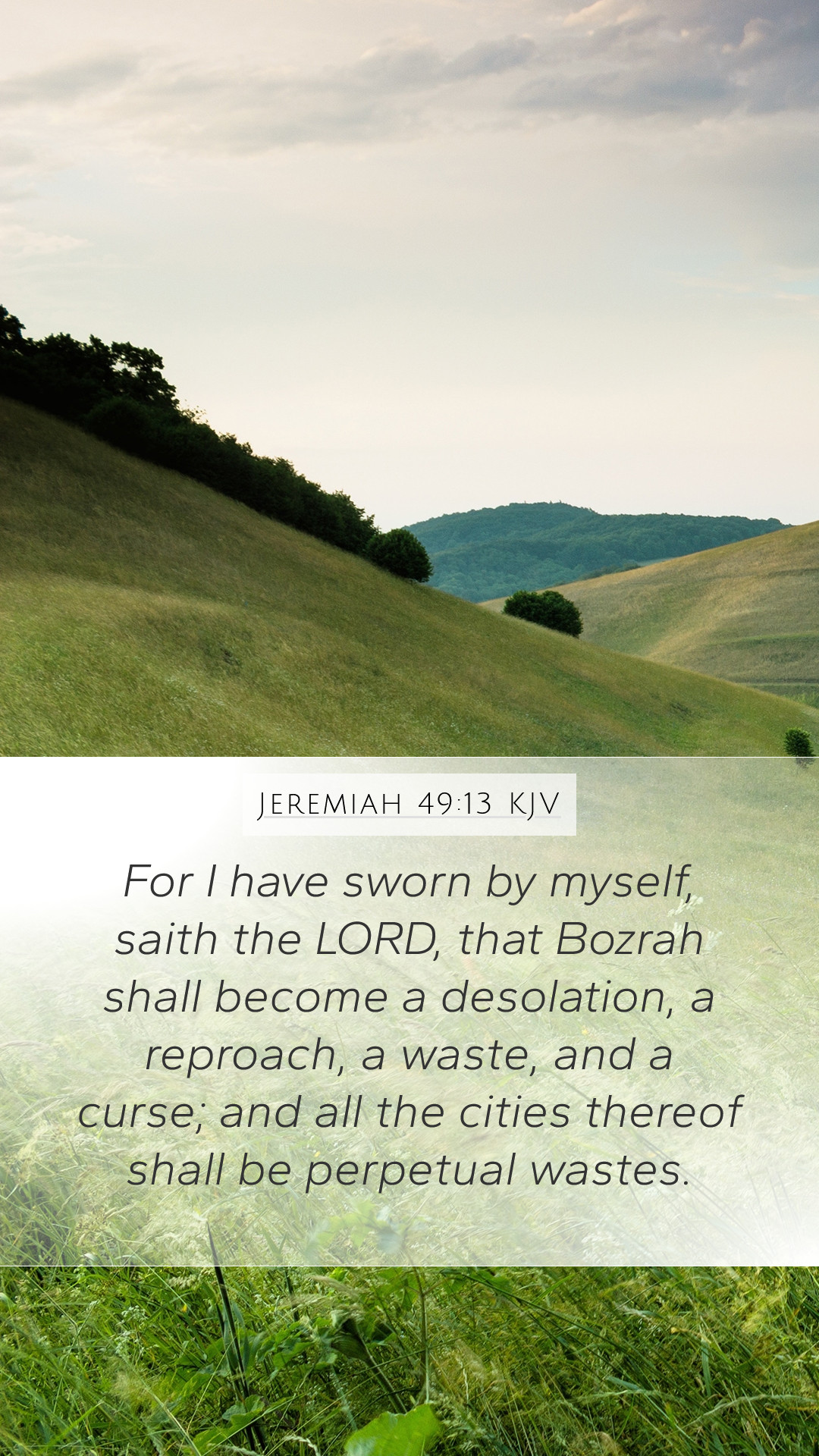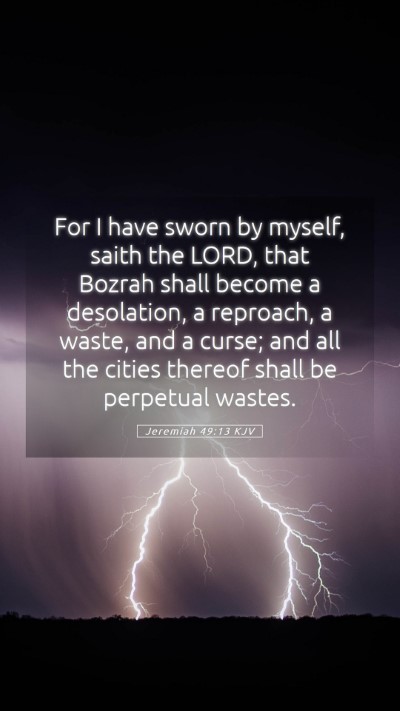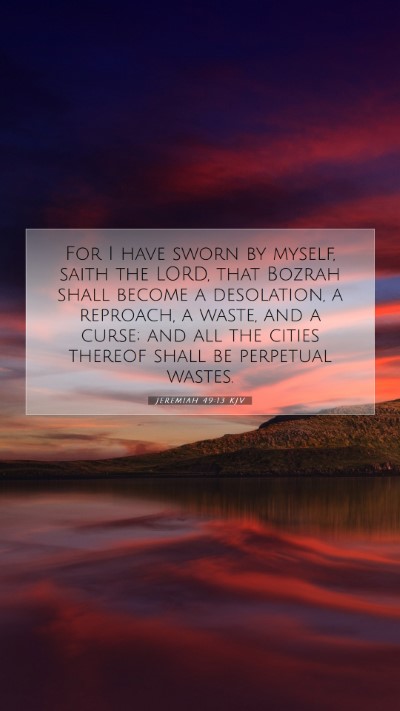Understanding Jeremiah 49:13
In this passage, God declares judgment upon Edom, emphasizing His authority over nations and the certainty of His prophecies. The verse states, "For I have sworn by myself, says the Lord, that Bozrah shall become a horror, a taunt, a waste, and a curse, and all her cities shall be perpetual wastes." This indicates that God's promises include both blessings and curses, reinforcing His sovereignty.
Bible Verse Meanings
This verse serves as a solemn reminder of God's judgment upon nations that oppose Him. It illustrates the consequences faced by those who turn from righteousness and engage in sin. God's oath signifies the irreversibility of His pronouncements, underscoring that what He has declared cannot be undone.
Bible Verse Interpretations
Matthew Henry highlights the significance of God’s oath as a declaration of certain judgment. God's promises to destroy Edom serve as a warning to others about His righteous nature. Albert Barnes adds that Bozrah was a prominent city in Edom, symbolizing the complete desolation that would befall the nation. Adam Clarke notes the prophecy's historical context, suggesting that the destruction serves as a moral lesson.
Scripture Analysis
To analyze this verse effectively, it is essential to consider the historical background of Edom. The Edomites were descendants of Esau and had long been adversaries of Israel. The prophecy of judgment corresponds to various conflicts recorded in the Old Testament, reaffirming the struggles between these two nations. Understanding this context enhances the meaning of God’s declaration.
Biblical Exegesis
Exegesis of Jeremiah 49:13 involves exploring the implications of God’s declaration. The horror and desolation foretold are not merely physical but encompass moral and spiritual ruin as well. This verse encapsulates themes of divine justice and the ultimate accountability of nations before God.
Bible Study Insights
When engaged in Bible study groups or online Bible study, this verse can spark discussions about God's sovereignty and justice. It prompts questions about how God's promises manifest in our lives today, especially regarding divine retribution and mercy.
Application of the Verse
In applying this verse to daily life, one should consider the importance of living righteously and recognizing the consequences of straying from God's commands. This serves as a cautionary tale about the perils of national sin and the prophetic warnings given throughout Scripture.
Additional Insights from Commentaries
- Matthew Henry: Stresses the certainty of divine retribution and the importance of repentance.
- Albert Barnes: Discusses the historical implications and the fate of Edom as a lesson for future generations.
- Adam Clarke: Provides insights into the geographical and historical relevance of Bozrah.
Cross References
- Obadiah 1:15 - The day of the Lord is near for all nations.
- Ezekiel 25:12 - God's judgment against Edom for their actions against Israel.
- Isaiah 34:5-6 - A prophecy of the destruction of Edom, portraying its desolation.
- Amos 1:11 - Mention of Edom’s transgressions against Israel.
Conclusion
Jeremiah 49:13 serves as a powerful reminder of God’s sovereignty and the reality of divine judgment. By integrating various Bible verse commentaries and interpretations, we gain a deeper understanding of Scripture, which encourages us to live in accordance with God's commands and to appreciate the weight of His promises.


